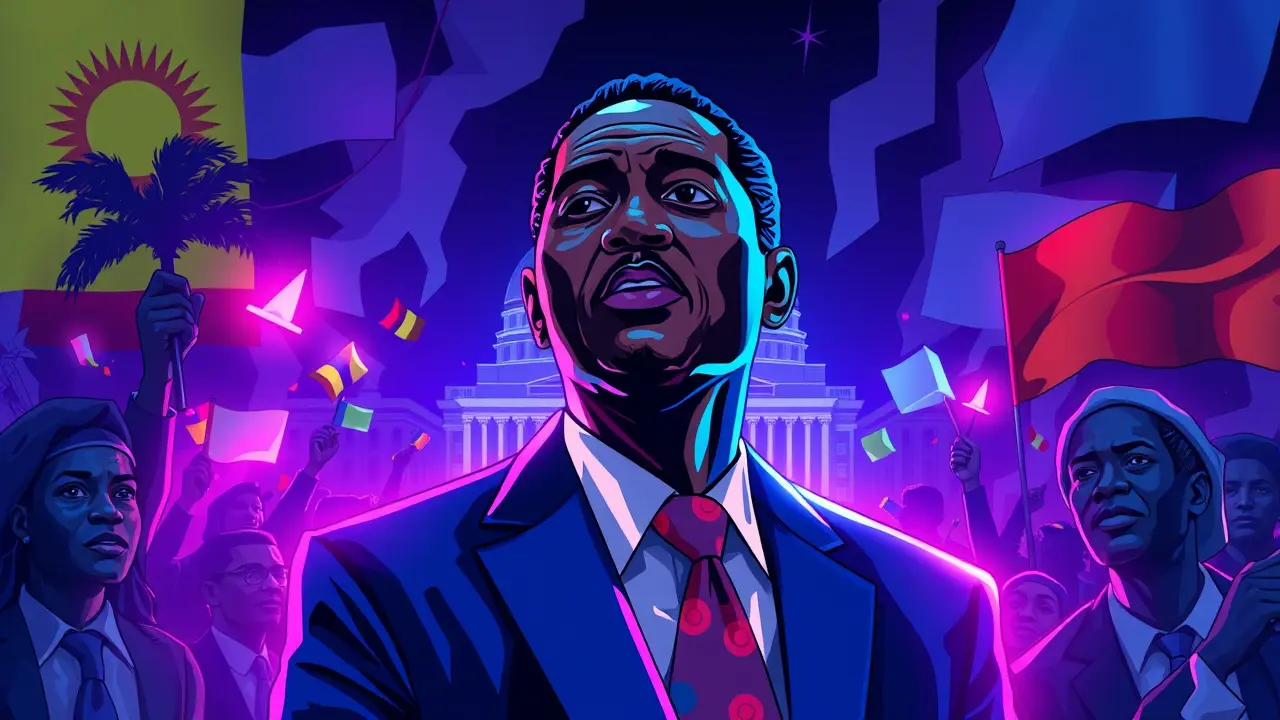Madagascar President Dissolves Parliament Amid Coup Fears
The political crisis in Madagascar erupted into a full-blown constitutional emergency Tuesday as President Andry Rajoelina, operating from a secured location outside Antananarivo, issued a presidential decree dissolving the National Assembly—a move immediately condemned by opposition leaders as an illegal power grab that signals imminent authoritarian rule. This dissolution represents a preemptive nuclear option against an opposition-led impeachment vote that had gained unstoppable momentum after two weeks of sustained street violence, largely fueled by young demonstrators who've clashed repeatedly with security forces, leaving dozens dead and hundreds injured in the bloodiest political confrontation the island nation has witnessed since the 2009 coup that first brought Rajoelina to power.The president's decision effectively torches Madagascar's fragile democratic institutions, creating a dangerous power vacuum that echoes the 2018 constitutional crisis in Venezuela when Nicolás Maduro dissolved the National Assembly, or more recently the 2021 Tunisian president's suspension of parliament—precedents that rarely end well for either democracy or stability. Rajoelina's camp claims the assembly had become ungovernable and threatened national security, while opposition figures like Marc Ravalomanana—the former president Rajoelina ousted fifteen years ago—are calling for mass civil disobedience and international intervention, arguing this constitutes a soft coup that violates multiple articles of Madagascar's constitution, specifically those requiring parliamentary consultation before dissolution.The timing is critically suspicious, coming just hours before legislators were scheduled to vote on impeachment proceedings fueled by corruption allegations surrounding Rajoelina's controversial acquisition of French nationality and his government's handling of the devastating 2021 drought that pushed millions toward famine while elite circles allegedly profited from aid contracts. Security forces have been placed on highest alert across all six provinces, with armored vehicles positioning around key government buildings in Antananarivo as the African Union emergency session convenes in Addis Ababa—though historically the AU's response to Malagasy crises has been notoriously slow and ineffective, as seen during the 2009 coup when months of deliberation produced only suspended membership that did little to restore democratic order.Meanwhile, economic collapse looms larger than ever for this nation of 28 million, where 75% already survive on less than $2 daily and the critical tourism industry—which normally provides 7% of GDP—has evaporated amid travel advisories, threatening total fiscal meltdown if the World Bank and IMF suspend ongoing bailout negotiations. The United Nations Security Council is monitoring for potential atrocities after unverified reports of military units using live ammunition against student protesters in Antsirabe, while France—the former colonial power maintaining significant economic interests in Madagascar's mining and vanilla sectors—faces diplomatic tightrope walking between supporting democratic norms and protecting strategic assets.This dissolution doesn't merely eliminate legislative opposition; it systematically dismantles the checks and balances painstakingly rebuilt after the 2009 crisis, potentially returning Madagascar to the strongman governance that has plagued its post-independence history and setting a dangerous precedent for other fragile democracies across the Sahel region where military juntas have recently gained footholds. The coming 48 hours will prove decisive—either diplomatic pressure forces Rajoelina to reverse course and negotiate, or Madagascar descends into prolonged conflict that could spill across the Mozambique Channel, triggering refugee crises and destabilizing the entire Indian Ocean region at a moment when global powers remain distracted by conflicts in Ukraine and the Middle East.
LI
Liam Chen123k2 days ago
here we go again with the 2009 playbook smh you'd think they'd at least get some new material
0
JA
Jamie Wilson123k2 days ago
this is just so heartbreaking for all the ordinary people caught in the middle tbh you can feel the fear and desperation in the streets
0
